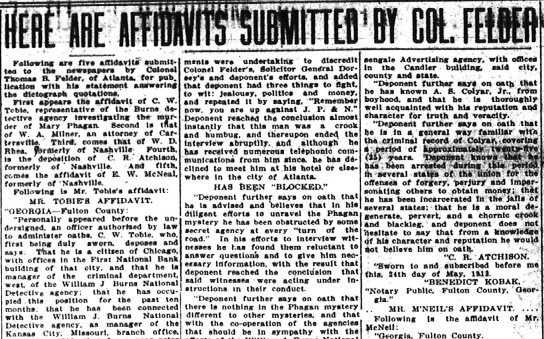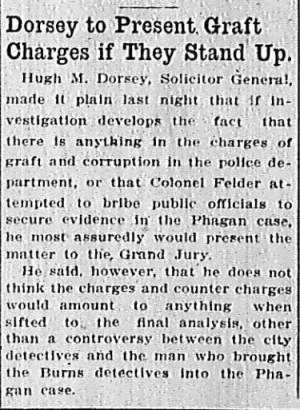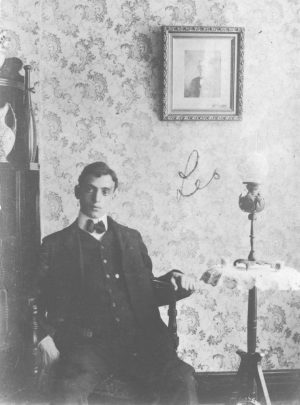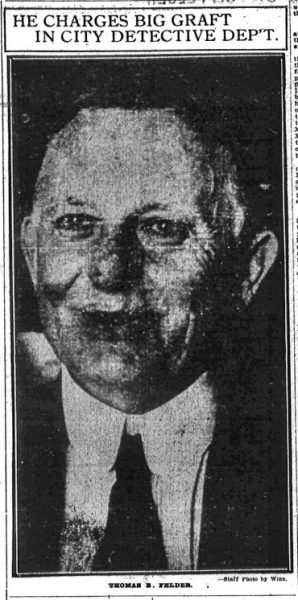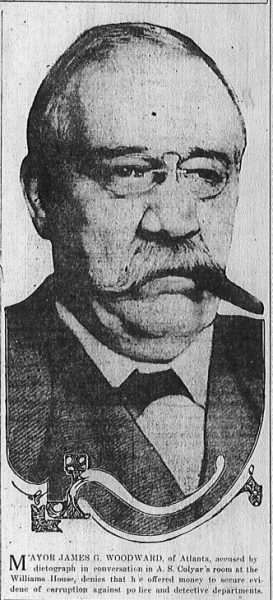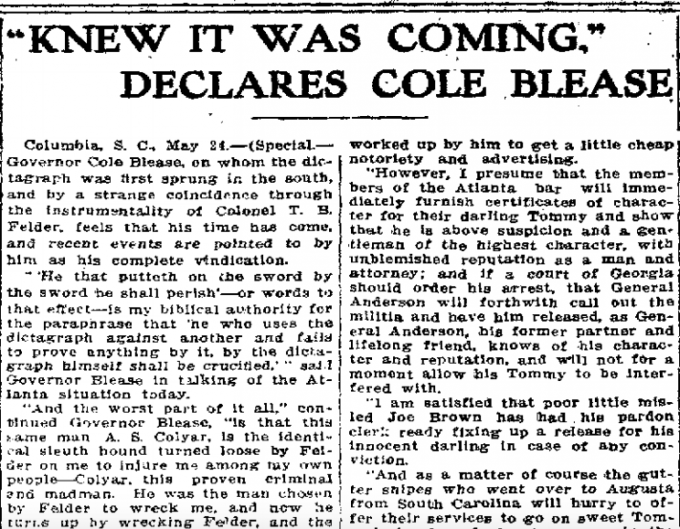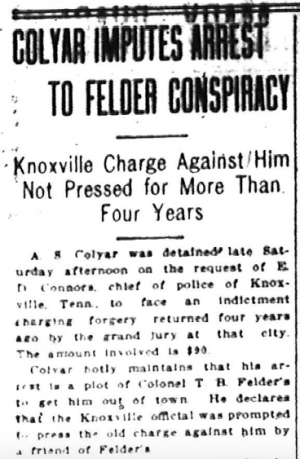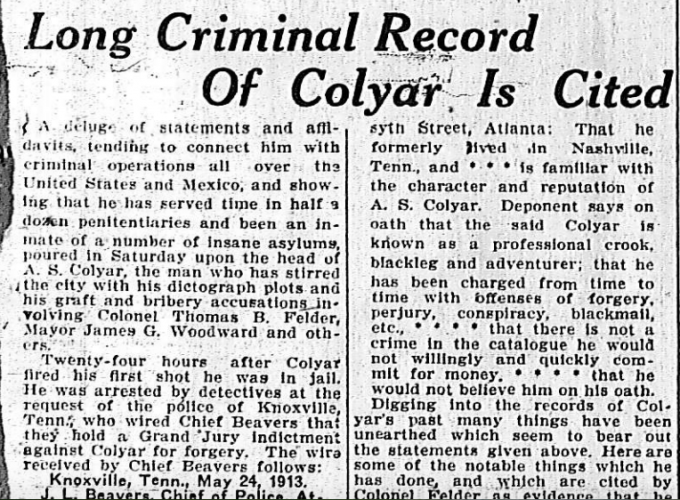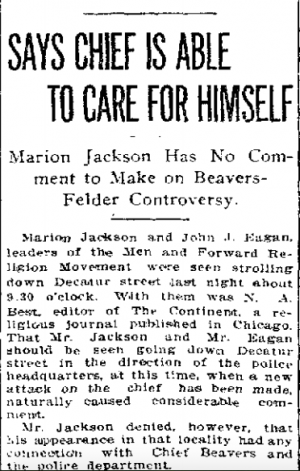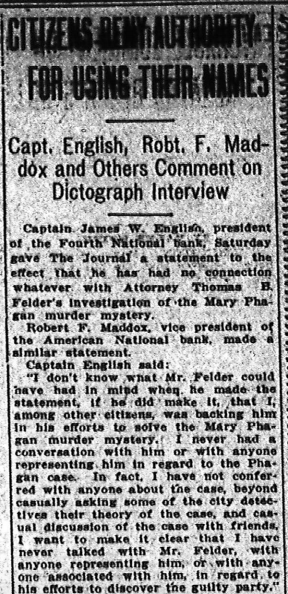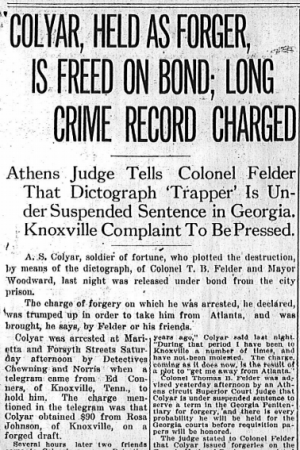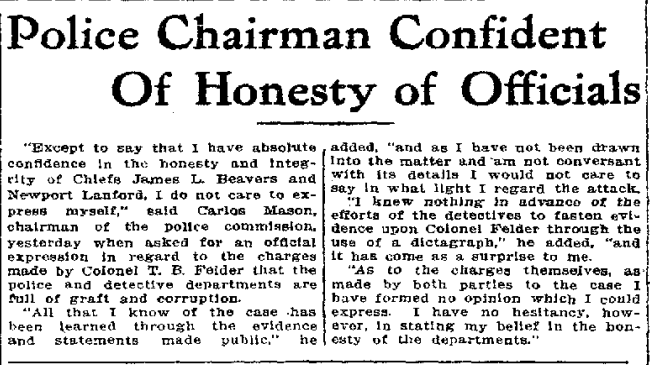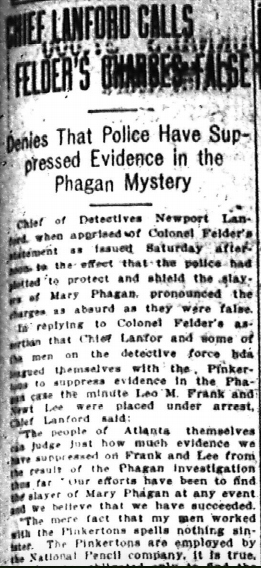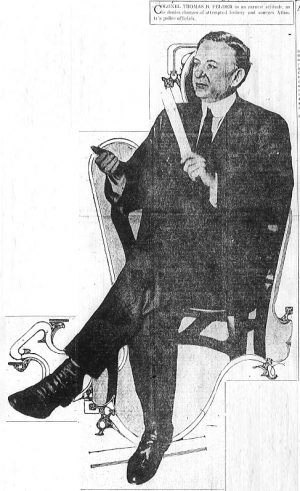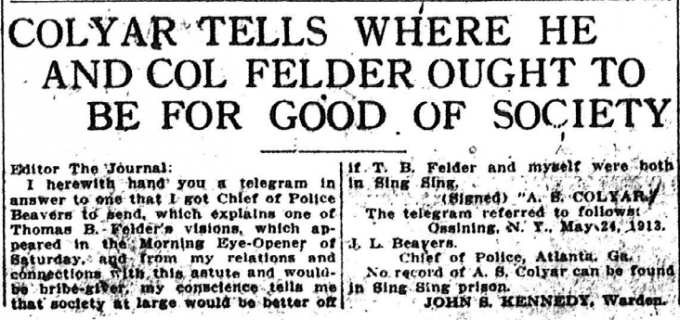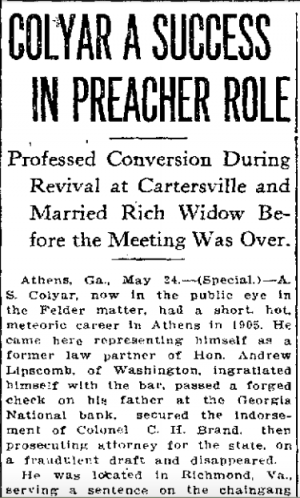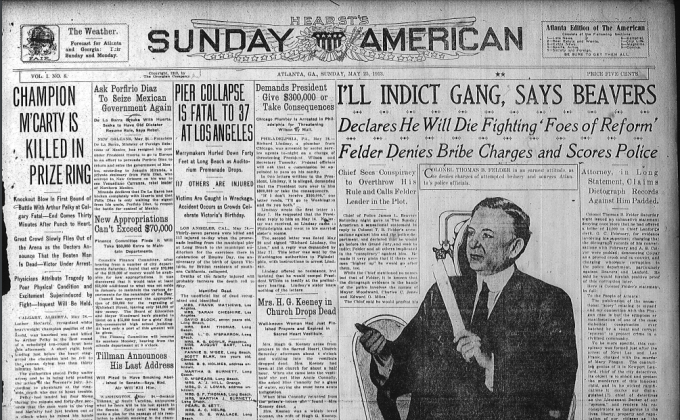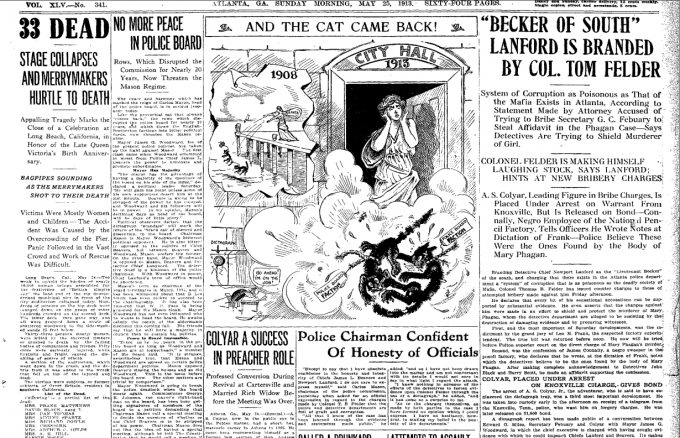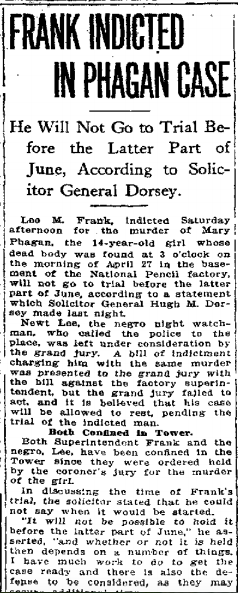 Another in our series of new transcriptions of contemporary articles on the Leo Frank case.
Another in our series of new transcriptions of contemporary articles on the Leo Frank case.
Atlanta Constitution
Sunday, May 25th, 1913
He Will Not Go to Trial Before the Latter Part of June, According to Solicitor General Dorsey.
Leo M. Frank, indicted Saturday afternoon for the murder of Mary Phagan, the 14-year-old girl whose dead body was found at 3 o’clock on the morning of April 27 in the basement of the National Pencil factory, will not go to trial before the latter part of June, according to a statement which Solicitor General Hugh M. Dorsey made last night.
Newt Lee, the negro night watchman, who called the police to the place, was left under consideration by the grand jury. A bill of indictment charging him with the same murder was presented to the grand jury with the bill against the factory superintendent, but the grand jury failed to act, and it is believed that his case will be allowed to rest, pending the trial of the indicted man.
Both Confined in Tower.
Both Superintendent Frank and the negro, Lee, have been confined in the Tower since they were ordered held by the coroner’s jury for the murder of the girl.
In discussing the time of Frank’s trial, the solicitor stated that he could not say when it would be started.
“It will not be possible to hold it before the latter part of June,” he asserted, “and whether or not it is held then depends on a number of things. I have much work to do to get the case ready and there is also the defense to be considered, as they may secure additional time. Continue Reading →

